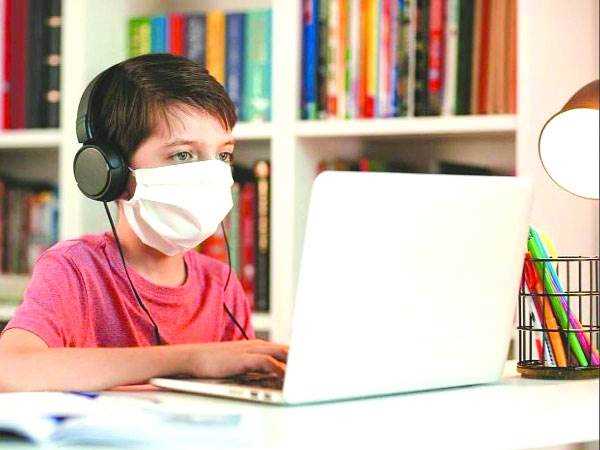
19-Jan-2021 , Updated on 1/19/2021 5:25:41 AM
Education Walling Up To Solutions In A Crisis
With the coronavirus taking its hold with people’s life inching more towards severity across the world, it needs to be made into our conscience, the impertinence of doing right and logically favorable, and how it can be done lies solely through education. While the countries across the world are racing to understand and limit the spread of coronavirus, something that once again escapes our mind is education and its role in helping us get back on track and putting an end to something of the same kind to rise again. In the wake of the new coronavirus, it was learned by many through some studies about the behavioral risks in the human-animal interactions that could lead to the emergence of bat coronaviruses in the human population. It was suggested that integrated and healthy community settings can help identify potential zoonotic disease spillover or targets surveillance to at-risk populations.
According to UNESCO, it was said that as of March, 16, 777 million children have been forced out of schools and universities in a total of 100 countries with 85 governments closing localized school closures. In no denial, the ones that are most affected in a crisis are the ones already shook with one. In an attempt to prevent them edge close to more, coronavirus should be the means of amplifying the struggles that children are facing in receiving a quality education.
What should we be worried about in this phase of the crisis that might have an immediate impact on children and youth?
(1) Losses in learning
(2) Increased dropout rates
(3) Children missing their most important meal of the day.
Moreover, most countries have very unequal education systems, and these negative impacts will be felt disproportionately by poor children. When it rains, it pours for them.
Starting the school year late or interrupting it, completely disrupts the lives of many children, their parents, and teachers. A lot can be done to at least reduce the impact through remote learning strategies. Richer countries are better prepared to move to online learning strategies, although with a lot of effort and challenges for teachers and parents.
In middle-income and poorer countries, the situation is very mixed and if we do not act appropriately, the vast inequality of opportunities that exists – egregious and unacceptable to start with – will be amplified. Many children do not have a desk, books, internet connectivity, a laptop at home, or supportive parents. What we need to avoid or minimize as much as possible is for those differences in opportunities to expand and cause the crisis to have an even larger negative effect on poor children’s learning.
It is not the people but the students practicing home learning who have experienced that the workload of online classes is larger than the regular classes. This is because those students lack the devices and internet access to be able to participate in online classes, and the schools cannot teach online. Unlike in New York where devices are distributed to students by schools and private companies, in Indonesia, there is yet to be this kind of effort. The presence of COVID-19 will directly and permanently change education in the future, seeing that we must be able to adapt to working and studying online for any kind of reasons and situations.
Apart from the challenges of equipment’s, we get to see the discipline getting discharged from students. There is no seriousness left that detaches them from their regularity.
Undoubtedly this pandemic has hit the poor hardest. Their lack of education has left them with no worry about the virus. Rather the only thing they worry about is their wage. In India, a scheme called Mid Day Meal holds a one-time meal to the children which also has come to standstill. Now, this has led to enlarging the gap between the rich and poor.

Employee
A Practically handling situation person, with the believe in hard work and smart work goes hand in hand. Love travelling and exploring with learning too.
Comments
Join Our Newsletter
Subscribe to our newsletter to receive emails about new views posts, releases and updates.
Copyright 2010 - 2026 MindStick Software Pvt. Ltd. All Rights Reserved Privacy Policy | Terms & Conditions | Cookie Policy